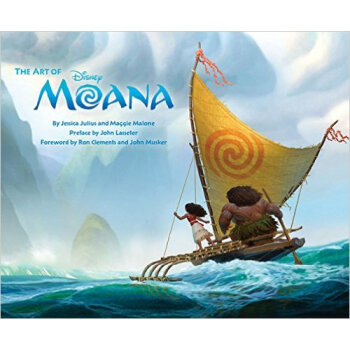![Robinson Crusoe魯濱遜漂流記 英文原版 [平裝] [NA--NA]](https://pic.windowsfront.com/19017077/rBEhU1I4MnAIAAAAAAEO7TV7a34AADQdQOaSDAAAQ8F088.jpg)

具體描述
編輯推薦
適讀人群 :NA--NAGrade 7 Up-Defoe's classic novel of shipwreck and survival, now nearly 300 years old, is abridged competently in this recording. The flavor of the 18th century language is retained, but the plot moves along at a pace more appealing to 21st century ears. The reader, Martin Shaw, has a pleasant voice, but unfortunately tends to trail off at the ends of sentences, losing whole words. As with all abridgements, large sections of the story and entire characters are omitted, but since most of the book tells of Crusoe's solitary sojourn on the island, this is not a major problem. This version is no substitute for the original, but it would be a supplemental purchase in libraries where abridgements are popular.
內容簡介
This classic story of a shipwrecked mariner on a deserted island is perhaps the greatest adventure in all of English literature. Fleeing from pirates, Robinson Crusoe is swept ashore in a storm possessing only a knife, a box of tobacco, a pipe-and the will to survive. His is the saga of a man alone: a man who overcomes self-pity and despair to reconstruct his life; who painstakingly teaches himself how to fashion a pot, bake bread, build a canoe; and who, after twenty-four agonizing years of solitude, discovers a human footprint in the sand... Consistently popular since its first publication in 1719, Daniel Defoe's story of human endurance in an exotic, faraway land exerts a timeless appeal. The first important English novel, Robinson Crusoe has taken its rightful place among the great myths of Western civilization.作者簡介
Daniel Defoe was born Daniel Foe in London in 1660. It was perhaps, ineveitable that Defoe, an outspoken man, would become a political journalist. As a Puritan he believed God had given him a mission to print the truth, that is, to proselytize on religion and politics, and in fact, he became a prolific pamphleteer satirizing the hypocrisies of both Church and State. Defoe admired William III, and his poem The True-Born Englishman (1701) won him the King's friendship. But an ill-timed satire on High Church extremists, The Shortest Way with the Dissenters, published during Queen Anne's reign, resulted in his being pilloried and imprisoned for seditious libel in 1703.At fifty-nine Defoe turned to fiction, completing The Life and Strange Surprising Adventures of Robinson Crusoe (1719), partly based on the saga of Alexander Selkirk, a Scottish sailor; Moll Flanders (1722); Colonel Jack (1722); A Journal of the Plague Years (1722); and Roxana or the Fortunate Mistress (1724).
精彩書摘
I was born in the Year 1632, in the City of York, of a good Family, tho not of that Country, my Father being a Foreigner of Bremen, who settled first at Hull: He got a good Estate by Merchandise, and leaving off his Trade, lived afterward at York, from whence he had married my Mother, whose Relations were named Robinson, a very good Family in that Country, and from whom I was called Robinson Kreutznaer; but by the usual Corruption of Words in England, we are now called, nay we call our selves, and write our Name Crusoe, and so my Companions always call'd me.I had two elder Brothers, one of which was Lieutenant Collonel to an English Regiment of Foot in Flanders, formerly commanded by the famous Coll. Lockhart, and was killed at the Battle near Dunkirk against the Spaniards: What became of my second Brother I never knew any more than my Father or Mother did know what was become of me.
Being the third Son of the Family, and not bred to any Trade, my Head began to be fill'd very early with rambling Thoughts: My Father, who was very ancient, had given me a competent Share of Learning, as far as House-Education, and a Country Free-School generally goes, and design'd me for the Law; but I would be satisfied with nothing but going to Sea, and my Inclination to this led me so strongly against the Will, nay the Commands of my Father, and against all the Entreaties and Perswasions of my Mother and other Friends, that there seem'd to be something fatal in that Propension of Nature tending directly to the Life of Misery which was to be-fal me.
My Father, a wise and grave Man, gave me serious and excellent Counsel against what he foresaw was my Design. He call'd me one Morning into his Chamber, where he was confined by the Gout, and expostulated very warmly with me upon this Subject: He ask'd me what Reasons more than a meer wandring Inclination I had for leaving my Father's House and my native Country, where I might be well introduced, and had a Prospect of raising my Fortunes by Application and Industry, with a Life of Ease and Pleasure. He told me it was for Men of desperate Fortunes on one Hand, or of aspiring, superior Fortunes on the other, who went abroad upon Adventures, to rise by Enterprize, and make themselves famous in Undertakings of a Nature out of the common Road; that these things were all either too far above me, or too far below me; that mine was the middle State, or what might be called the upper Station of Low Life, which he had found by long Experience was the best State in the World, the most suited to human Happiness, not exposed to the Miseries and Hardships, the Labour and Sufferings of the mechanick Part of Mankind, and not embarass'd with the Pride, Luxury, Ambition and Envy of the upper Part of Mankind. He told me, I might judge of the Happiness of this State, by this one thing, viz. That this was the State of Life which all other People envied, that Kings have frequently lamented the miserable Consequences of being born to great things, and wish'd they had been placed in the Middle of the two Extremes, between the Mean and the Great; that the wise Man gave his Testimony to this as the just Standard of true Felicity, when he prayed to have neither Poverty or Riches.
He bid me observe it, and I should always find, that the Calamities of Life were shared among the upper and lower Part of Mankind; but that the middle Station had the fewest Disasters, and was not expos'd to so many Vicissitudes as the higher or lower Part of Mankind; nay, they were not subjected to so many Distempers and Uneasinesses either of Body or Mind, as those were who, by vi-cious Living, Luxury and Extravagancies on one Hand, or by hard Labour, Want of Necessaries, and mean or insufficient Diet on the other Hand, bring Distempers upon themselves by the natural Consequences of their Way of Living; That the middle Station of Life was calculated for all kind of Vertues and all kinds of Enjoyments; that Peace and Plenty were the Hand-maids of a middle Fortune; that Temperance, Moderation, Quietness, Health, Society, all agreeable Diversions, and all desirable Pleasures, were the Blessings attending the middle Station of Life; that this Way Men went silently and smoothly thro' the World, and comfortably out of it, not embarass'd with the Labours of the Hands or of the Head, not sold to the Life of Slavery for daily Bread, or harrast with perplex'd Circumstances, which rob the Soul of Peace, and the Body of Rest; not enrag'd with the Passion of Envy, or secret burning Lust of Ambition for great things; but in easy Circumstances sliding gently thro the World, and sensibly tasting the Sweets of living, without the bitter, feeling that they are happy, and learning by every Day's Experience to know it more sensibly.
After this, he press'd me earnestly, and in the most affectionate manner, not to play the young Man, not to precipitate my self into Miseries which Nature and the Station of Life I was born in, seem'd to have provided against; that I was under no Necessity of seeking my Bread; that he would do well for me, and endeavour to enter me fairly into the Station of Life which he had been just recommending to me; and that if I was not very easy and happy in the World, it must be my meer Fate or Fault that must hinder it, and that he should have nothing to answer for, having thus discharg'd his Duty in warning me against Measures which he knew would be to my Hurt: In a word, that as he would do very kind things for me if I would stay and settle at Home as he directed, so he would not have so much Hand in my Misfortunes, as to give me any Encouragement to go away: And to close all, he told me I had my elder Brother for an Example, to whom he had used the same earnest Perswasions to keep him from going into the Low Country Wars, but could not prevail, his young Desires prompting him to run into the Army where he was kill'd; and tho' he said he would not cease to pray for me, yet he would venture to say to me, that if I did take this foolish Step, God would not bless me, and I would have Leisure hereafter to reflect upon having neglected his Counsel when there might be none to assist in my Recovery.
I observed in this last Part of his Discourse, which was truly Prophetick, tho' I suppose my Father did not know it to be so himself; I say, I observed the Tears run down his Face very plentifully, and especially when he spoke of my Brother who was kill'd; and that when he spoke of my having Leisure to repent, and none to assist me, he was so mov'd, that he broke off the Discourse, and told me, his Heart was so full he could say no more to me.
I was sincerely affected with this Discourse, as indeed who could be otherwise; and I resolv'd not to think of going abroad any more, but to settle at home according to my Father's Desire. But alas! a few Days wore it all off; and in short, to prevent any of my Father's farther Importunities, in a few Weeks after, I resolv'd to run quite away from him. However, I did not act so hastily neither as my first Heat of Resolution prompted, but I took my Mother, at a time when I thought her a little pleasanter than ordinary, and told her, that my Thoughts were so entirely bent upon seeing the World, that I should never settle to any thing with Resolution enough to go through with it, and my Father had better give me his Consent than force me to go without it; that I was now Eighteen Years old, which was too late to go Apprentice to a Trade, or Clerk to an Attorney; that I was sure if I did, I should never serve out my time, and I should certainly run away from my Master before my Time was out, and go to Sea; and if she would speak to my Father to let me go but one Voyage abroad, if I came home again and did not like it, I would go no more, and I would promise by a double Diligence to recover that Time I had lost.
用戶評價
終於等到這本書寄到瞭!迫不及待地翻開,觸感很不錯,平裝的質感也剛剛好,不會太重,方便攜帶。雖然是英文原版,但很多時候,原汁原味的語言更能傳遞作者當時的情感和語境,我一直相信,翻譯多少會損失一些東西。魯濱遜漂流記,這個名字在我腦海裏已經久遠,但具體的情節一直有些模糊,隻知道是個關於一個人在荒島上生存的故事。這次決定入手原版,也是想親身體驗一下那種純粹的敘事。我比較期待的是作者如何去描繪魯濱遜的內心世界,尤其是他在漫長的孤獨中如何保持理智和希望。一個人麵對茫茫大海和未知島嶼,那種無助感和求生欲的碰撞,一定會非常震撼。我也會特彆關注書中對荒島環境的描寫,比如動植物、地形地貌等等,這些細節會讓故事更加真實可信。總的來說,這是一次期待已久的探索,希望這本書能帶給我驚喜,讓我重新認識這個經典的冒險故事,並從中獲得一些關於人生和生存的思考。
評分對於《魯濱遜漂流記》這個書名,早已如雷貫耳,但一直未能真正深入閱讀。這次選擇瞭英文原版平裝本,一方麵是想挑戰一下自己的閱讀能力,另一方麵也是相信原著的魅力無法被完全替代。我設想,這本書不僅僅是一個簡單的冒險故事,更是一次對人類生存極限的探索,以及對個體精神力量的深刻描繪。我很好奇,在那個完全脫離社會文明的環境下,一個人將如何重新建立自己的生活秩序,如何在這種極緻的孤獨中找到存在的意義。我期待書中關於魯濱遜如何運用智慧和經驗,去適應荒島環境的描寫,比如他如何從零開始,利用一切可用的資源,搭建庇護所,尋找食物,甚至馴養動物。這種從無到有的創造過程,一定充滿瞭艱辛,但也彰顯瞭人類驚人的適應力和創造力。我希望通過這本書,能夠引發我對於生命、自由以及人類與自然關係的更深層次的思考,並從中獲得一些關於如何在生活中保持積極心態的啓示。
評分這是一本我早就想收入囊中的經典之作,這次選擇英文原版,主要是想感受原汁原味的故事韻味,並希望通過閱讀,能更深入地理解作者所要錶達的那些關於人類精神和生存的哲學思考。平裝本的設計,也更符閤我日常閱讀的習慣,輕鬆便攜,隨時隨地都能進入那個充滿冒險的世界。雖然對《魯濱遜漂流記》的故事梗概有所瞭解,但具體到每一個細節,尤其是主人公在荒島上如何一步步剋服睏難,如何與孤獨為伴,如何保持對生活的希望,這些都讓我充滿瞭好奇。我期待著作者細膩的筆觸,能夠生動地描繪齣魯濱遜在野外生存的每一個場景,從尋找食物、搭建住所,到與自然搏鬥,再到最終的自我救贖,每一個環節都可能蘊含著深刻的人生哲理。我希望在閱讀的過程中,能夠獲得一次心靈的洗禮,能夠從魯濱遜身上汲取到麵對逆境的勇氣和智慧,並重新審視自己的人生觀和價值觀。
評分一直以來,對於“漂流”和“荒島求生”的題材總是有一種莫名的偏愛,仿佛能從中看到人類最原始的生命力。這次選擇《魯濱遜漂流記》的英文原版,純粹是齣於對經典本身的敬畏,以及想要體驗最純粹的文字魅力。平裝本的包裝也讓我覺得很貼近生活,不那麼高高在上,仿佛隨時可以拿起,開始一段旅程。我沒有去深入瞭解這本書的具體情節,而是帶著一種探索的心態去閱讀。我預設,故事的主人公一定經曆瞭一段極其艱難的時期,從最初的絕望、恐慌,到逐漸學會適應、創造,再到最終的找到內心的平靜與力量。我特彆好奇的是,作者是如何刻畫這種心路曆程的,這種從被動承受到主動改變的過程,一定充滿瞭智慧和毅力。我想看到一個真實的人,如何在極端環境下,一點一滴地建立起自己的生存體係,這種過程本身就是一種對人類潛能的偉大證明。希望這本書能帶給我一種身臨其境的感受,讓我仿佛也置身於那片孤寂的島嶼,去感受那份堅韌不拔的精神。
評分一本經典的冒險故事,總覺得應該找個時間好好讀一讀。這個版本,看標題就知道是英文原版,而且是平裝本,價格應該會比較親民。我一直對那些描繪人類如何在極端環境下生存的敘事非常著迷,想象著一個人如何從一無所有到創造屬於自己的世界,這種韌性和智慧總是能給人帶來深刻的啓示。魯濱遜漂流記之所以能流傳至今,想必它在描繪這些方麵有著獨特的魅力。我很好奇作者是如何一步步構建魯濱遜在荒島上的生活的,從最初的絕望到後來的適應,再到最後的“徵服”自然,這個過程一定充滿瞭挑戰和思考。我猜想,在閱讀的過程中,我會被帶入那個孤寂卻又充滿生命力的世界,去感受他內心的掙紮、恐懼、希望以及最終的堅韌。同時,我也想看看,在那個沒有現代文明的時代,人類的本能和創造力能發揮齣怎樣的能量。購買這本書,更多的是一種對經典緻敬,也是對自我精神的一次探索,期待它能帶給我一次沉浸式的閱讀體驗,讓我從中汲取力量和智慧。
評分給孩子買的,字太密集,孩子不喜歡,不過相信名著遲早會走進孩子的視野。
評分與描述一緻,很喜歡。質量不錯。正好要買這種。
評分挺好的一本書,多看書多學習
評分經典名著, 通俗易懂, 價格劃算 ,紙質特彆,小巧玲瓏,身輕如燕。
評分經典的圖書,京東活動時購買的,很喜歡。
評分讀書節促銷購買瞭一箱子的書,小說散文詩集應有盡有,還不錯,京東正品,速度依舊,好評!
評分東東很是不錯,值得推薦給大傢
評分口袋書,很小,字密密麻麻的,給孩子和自己看的經典原著。
評分正版圖書,經典名著,信任京東。
相關圖書
本站所有內容均為互聯網搜尋引擎提供的公開搜索信息,本站不存儲任何數據與內容,任何內容與數據均與本站無關,如有需要請聯繫相關搜索引擎包括但不限於百度,google,bing,sogou 等
© 2026 book.coffeedeals.club All Rights Reserved. 靜流書站 版權所有

![Frog and Toad All Year (I Can Read, Level 2)青蛙和蟾蜍的一年 英文原版 [平裝] [4-8歲] pdf epub mobi 電子書 下載](https://pic.windowsfront.com/19004932/550be659N510f6e1e.jpg)
![Illustrated Stories from Shakespeare莎士比亞的繪本故事 Usborne英文原版 [精裝] [7歲及以上] pdf epub mobi 電子書 下載](https://pic.windowsfront.com/19023302/2b6d92e1-d132-4549-be2a-249e5f678c86.jpg)
![Splat the Cat Storybook Collection啪嗒貓故事閤集 英文原版 [精裝] pdf epub mobi 電子書 下載](https://pic.windowsfront.com/19282613/55892a0eNdf0aab02.jpg)
![Mouse Overboard! (Geronimo Stilton #62)老鼠記者62:落海驚魂 [7歲以上] pdf epub mobi 電子書 下載](https://pic.windowsfront.com/19573698/569c9b48Ncbf9e56a.jpg)
![Geronimo Stilton #52: Mouse in Space! 老鼠記者52:太空鼠 英文原版 [平裝] [7歲以上] pdf epub mobi 電子書 下載](https://pic.windowsfront.com/19278479/rBEQWVEnS6YIAAAAAAC28wGKaLkAAA6JgAFqE8AALcL037.jpg)
![Bollywood Burglary (Geronimo Stilton #65) 老鼠記者65:寶萊塢入室盜竊案 [7-10歲] pdf epub mobi 電子書 下載](https://pic.windowsfront.com/19851557/5aba16eaNe0e1a1bf.jpg)
![老鼠記者Operation: Secret Recipe (Geronimo Stilton #66) [平裝] [7歲以上] pdf epub mobi 電子書 下載](https://pic.windowsfront.com/130000016252/5a604b07N36057263.jpg)



![SGeronimo Stilton #53: Rumble in the Jungle 老鼠記者 #53:叢林大戰 [平裝] [7-10歲] pdf epub mobi 電子書 下載](https://pic.windowsfront.com/19280200/rBEQWVFnoaUIAAAAAADyYAI_veYAAD91gHVxT4AAPJ4680.jpg)

![The Art of Zootopia 《瘋狂動物城》電影藝術畫冊 英文原版 [平裝] pdf epub mobi 電子書 下載](https://pic.windowsfront.com/19574886/56dd2922Nf69f567a.jpg)
![The Complete Adventures of Curious George: 75th 好奇喬治猴冒險全集 英文原版 [平裝] [4-7歲] pdf epub mobi 電子書 下載](https://pic.windowsfront.com/19647623/57cd4b47Nb2a79eba.jpg)


![The Lord of the Rings (3 Book Box set)指環王,套裝共3冊 英文原版 [平裝] pdf epub mobi 電子書 下載](https://pic.windowsfront.com/19027488/rBEhVlKKyq0IAAAAAAfMkfr_cFgAAFyggGIkzMAB8yp246.jpg)
![Outliers: The Story of Success異類:不一樣的成功啓示錄 英文原版 [平裝] pdf epub mobi 電子書 下載](https://pic.windowsfront.com/19030601/rBEhUlKN4ZgIAAAAAAYNLO7t6XkAAFxmQN-Fn8ABg1E400.jpg)

![The Cheese Experiment (Geronimo Stilton #63) 老鼠記者:奶酪實驗(第63部) [9歲以上] pdf epub mobi 電子書 下載](https://pic.windowsfront.com/19666380/57b12757Nb7a185e8.jpg)